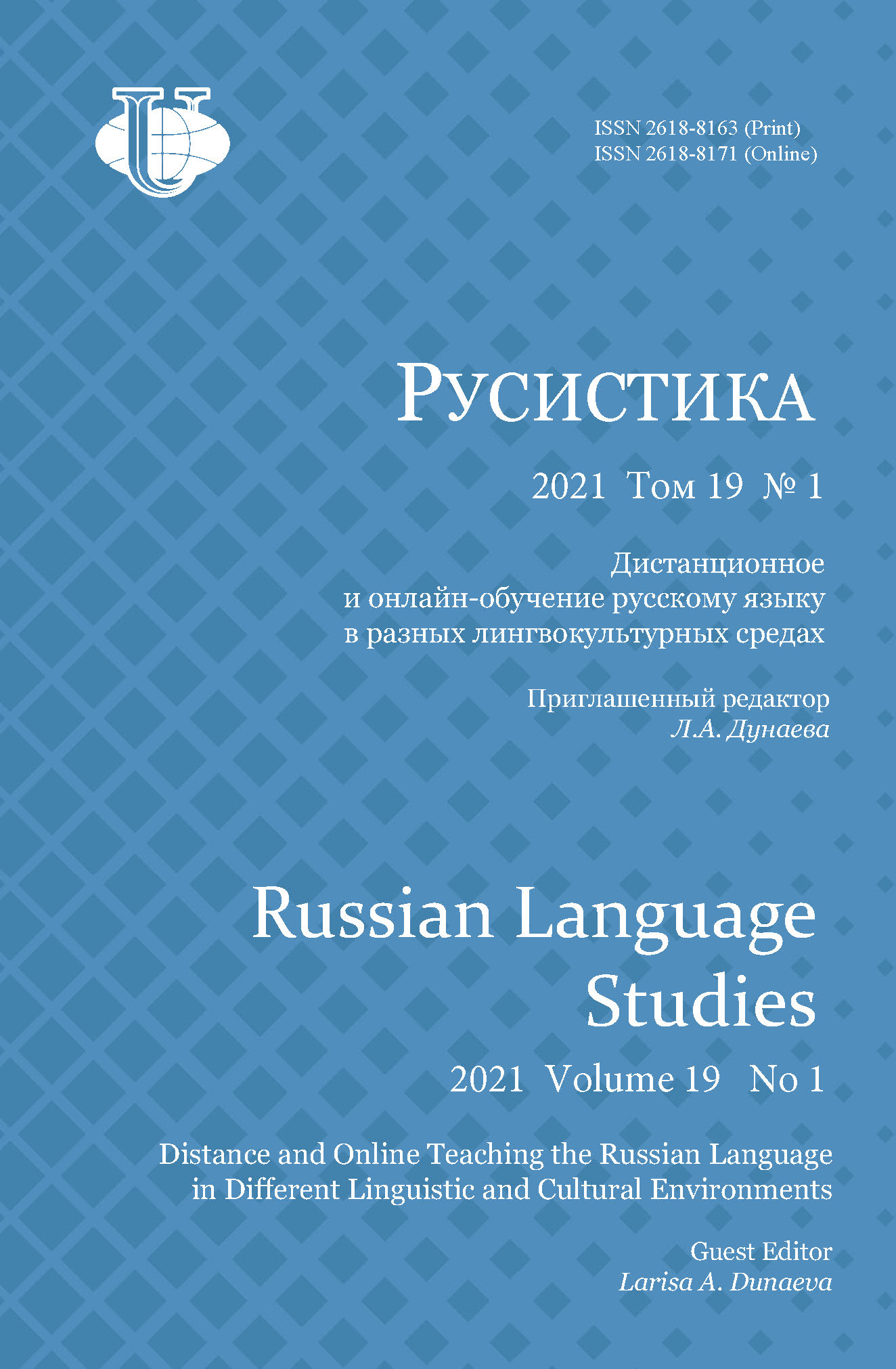Review on the Textbook on Russian as a Foreign Language: Stepanenko, V.A., Nakhabina, M.M., Kolovska, E.G., & Plotnikova, O.V. (2020). Hello, Russia! Moscow, Kuchkovo pole Publ.
- Authors: Elistratov V.S.1
-
Affiliations:
- Lomonosov Moscow State University
- Issue: Vol 19, No 1 (2021): Distance and Online Teaching the Russian Language in Different Linguistic and Cultural Environments
- Pages: 116-118
- Section: Book Reviews
- URL: https://journals.rudn.ru/russian-language-studies/article/view/26134
- DOI: https://doi.org/10.22363/2618-8163-2021-19-1-116-118
Cite item
Full Text
Abstract
-
Full Text
The peer-reviewed textbook will undoubtedly take a special place in the “gallery of textbooks” on Russian as a foreign language (RFL) in the 20s of the 21 century.
Let us try to substantiate our opinion.
The elementary level (A1) is, in our opinion, the most complex and therefore the most vulnerable in comparison to all other levels. The fact is that this level, on the one hand, is extremely traditional and elaborate, “well-established”. In other words, it contains the greatest danger of stereotyping. On the other hand, it is the most responsible and, ultimately, the most creative. If a foreigner does not want to go beyond the A1 level in learning Russian, we, Russia, will lose one of the main opportunities to expand and strengthen the position of the Russian language in the modern world.
In principle, any experienced RFL teacher knows very well where to start teaching. The mechanism of “introduction to the Russian language” for foreigners has been developed for decades. And in this textbook the structure is clear and understandable even for a novice teacher. However, it is gratifying that the authors of the textbook present language material on a thematic basis, and this principle is not observed in all new textbooks. The book “Hello, Russia!” consists of 12 lessons (each of which is accompanied by an audio course available via QR code). The names of lessons imply certain topics and situations of communication, which are organically connected with the lexicogrammatical content.
The first two lessons (“Hello!”, “All professions are necessary, all professions are important”) present the Russian alphabet and phonetic system, as well as grammatical categories of animate/inanimate, and gender of nouns, personal and possessive pronouns. In the next three lessons (“My day”, “My life: home, work, study”, “My interests”), you will get acquainted with the plural of nouns and the prepositional system (prepositional and accusative cases), verb conjugation, and quantitative numerals. The next block (“Every man to his own taste”, “We're going, we're going, we're going...”, “The whole world is online: friends, cities, countries”, “Welcome to Russia!”) contains adjectives and adverbs formed from them, ordinal numbers and verbs of movement in the present and past tense, as well as the genitive case of nouns. In the final block (“Business before pleasure”, “Family is the seven Selves”, “We wish you happiness!”) you will learn the verb's type category, its future tense, and the instrumental and dative cases of nouns.
But if the grammatical “consensus” in A1 is more or less developed, as well as the “consensus” on, say, functional (first of all – everyday) vocabulary, then the linguocultural component of the elementary level remains a kind of combat zone of the methodology.
What “linguistic cultures” should be introduced into circulation: Soviet, post-Soviet, post-post-Soviet? Modern? Ultramodern? “Eternal”? Note again: at more advanced levels, the degree of “didactic responsibility” becomes more blurred. At the initial stage, however, we are dealing with a “start” – a very good name for the well-known Soviet, albeit extremely ideological, textbook on RFL (Galeeva et al., 1979), – where “as you name a ship, so it will float”.
The authors of the textbook “Hello, Russia!” seem to have very accurately grasped this linguistic, cultural and didactic problem of our time. It is one of the most topical issues for RFL.
Maybe the fact is that the four authors are just four generations of RFL teachers. And there was some “methodological and magical” succession of generations?
We (as a cultural scientist) was most interested in how the authors will enter linguistic and cultural information: in what order, in what volume, etc. In the textbook, this is done unobtrusively and naturally.
Here, speaking the language of the ancient Chinese, the Midway principle was respected. Food, Pushkin, money, the Internet – all of this in the textbook is very reasonably dosed, as if unhurriedly and at the same time clear and precise.
It can be assumed that this book is one of the first textbooks to be based not only on the principles of classical linguodidactics as well as those substantiated by N.M. Shansky. It is also based on the principles which, based on the previous ones, may become the basis for the next generations of RFL textbooks that will respond to the challenges of our time.
All this can be called didactic linguoculturology. It could be called linguocultural didactics, or culturological linguodidactics. This does not change the essence.
Moreover, the textbook is distinguished by the availability of a full-fledged electronic version, which is currently in great demand. On the textbook website www.rus.studyyou can not only get acquainted with all the possibilities of working with it, but also listen to (and this is new in our methodological support of the teaching process!) detailed methodological recommendations for each lesson.
We would like to congratulate the authors of the textbook on their great creative success, and wish the book a great journey around the planet Earth.
About the authors
Vladimir S. Elistratov
Lomonosov Moscow State University
Author for correspondence.
Email: vse.slova@mail.ru
Doctor of Cultural Sciences, Professor, Professor of the Department of Foreign Languages and Regional Studies
1 Leninskie Gory, Moscow, 119192, Russian FederationReferences
- Galeeva, M.M., Zhuravleva, L.S., Nakhabina, M.M., Protasova, T.N., & Shipitso, L.V. (1979). Start-1. Russian language textbook for preparatory faculties of higher edu-cation institutions of the USSR. Moscow, Russkii yazyk Publ. (In Russ.)















